It was the best of times, it was the best of times. Along the Rhine in the western region of Germany lie two cities less than 40 kilometers apart that could not be more different: Köln (Cologne) and Düsseldorf. Both located in the North Rhine-Westphalia state, these cities are different in ambiance, architecture, attractions, people, and, perhaps most importantly to Germans, beer. As a result, I often recommend that friends traveling in the area fit these two places into their itineraries as they are well located and accessible from popular European destinations and you can see two great, yet distinct, cities within a limited time-frame. Truly a two for one deal.
Given the close proximity of these top populated German cities (Cologne is 4th largest, Düsseldorf the 7th), there is a strong rivalry between the two. When I was studying near Koblenz, just south of Cologne, I met a number of people who resided from these two cities, and each of them thought theirs was the best. When I wanted to have quick trip on the weekend and asked for advice from my classmates, immediately the Cologne or Düsseldorf debate arose and things escalated pretty rapidly. Even on travel and expat forums when someone is brave enough to ask whether to visit Cologne or Düsseldorf, the votes are evenly mixed between the two yet are quite strongly worded in favour of their respective city. It’s hard to imagine such a mentality change over a 30 minute train ride, especially given that I’d still be in my city of Toronto after that long.
The History
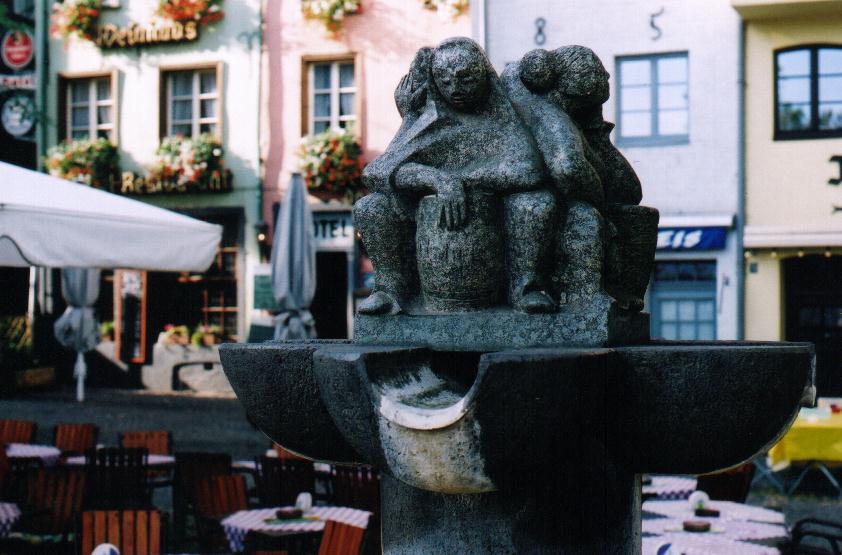
The rivalry between the two cities goes way back and is really a classic power struggle. Cologne was a Roman city, founded around 50 AD and rose to prominence in the middle ages as a critical trade route. With its ties to Rome, the city also became an important hub for Catholicism. This is still evident today with the impressive Dom Cathedral acting as an important site for both Christian pilgrimage and some 20,000 daily tourists. Düsseldorf, on the other hand, grew more organically from a small village where the Düssel and Rhine rivers meet, to a chartered city in the 13th century. In contrast to Cologne, Düsseldorf embraced a more secular society. Years later, Düsseldorf was named the capital of the North Rhine-Westphalia region over Cologne. In recent years, the rivalry has been fueled by different factors – predominantly sports and beer.
The Vibe
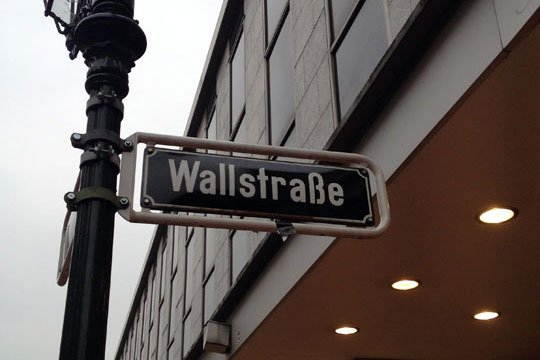
Düsseldorf is business, high fashion and posh. A hub for finance, insurance and mobile conglomerates in the Rhine region, Düsseldorf has several high-end activities to entertain the business elite when they venture out from their pseudo skyscrapers. With a deep appreciation for the arts (Kunstmuseum, K20 Kunstsammlung), fine dining (plenty of Michelin star options to choose from), and upscale shopping (Koningsalle – Germany’s equivalent to the Champs-Élysées), the city is abuzz with cultural exploits, living up to the standards of its high-life living citizens.
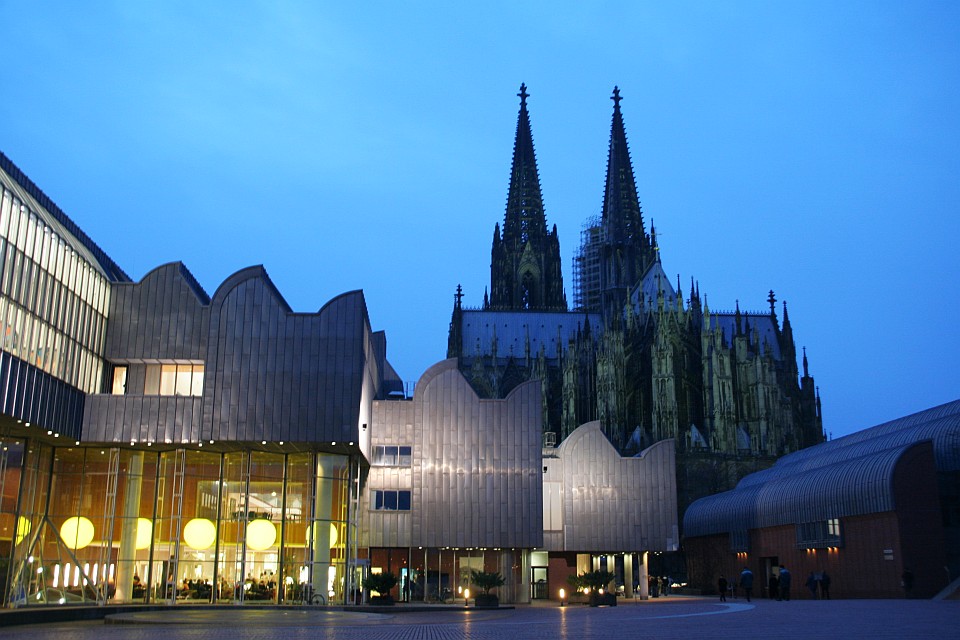
Cologne is industry, media and easygoing. With one in five Kölners working in manufacturing and around one-third of all German television media produced in this area, Cologne has a much more mellow vibe than its northern counterpart. Cultural offerings in the city are quite diverse ranging from over 40 museums, (such as Museum Ludwig highlighting prominent modern art), open air festivals and concerts (ie. Cologne Lights each July), and a burgeoning theatre scene showcasing the mainstream to the eclectic. Residents relish their free time and enjoy sitting carefree at one of the city’s many cafes.
The Space
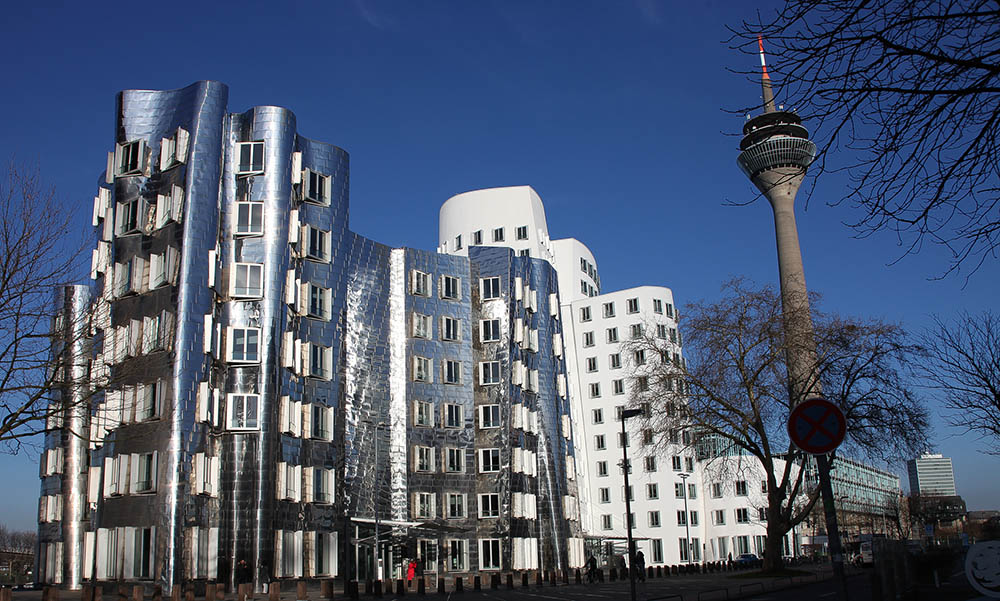
Düsseldorf is modern but has a charming Old City. Ranging from the uber-contemporary (Gehry’s Neuer Zollhof & Chipperfield’s Kaistrasse 16) to turn of the century expressionist buildings (Ehrenhof & Wilhelm Marx Haus), Düsseldorf has some nice architectural spots. The old city (“Altstadt”) is the historic city centre along the banks of the Rhine and Düssel rivers. The cobblestone clad pedestrian strip of restaurants, beer houses & pubs, museums and markets provides a plethora of ways to spend your day set against the nostalgic backdrop of classic German style house and buildings. With an extensive Japanese community (the largest in Germany), the city has a bustling Japan district along Immermannstraße with traditional foods, book stores, and grocery outlets.
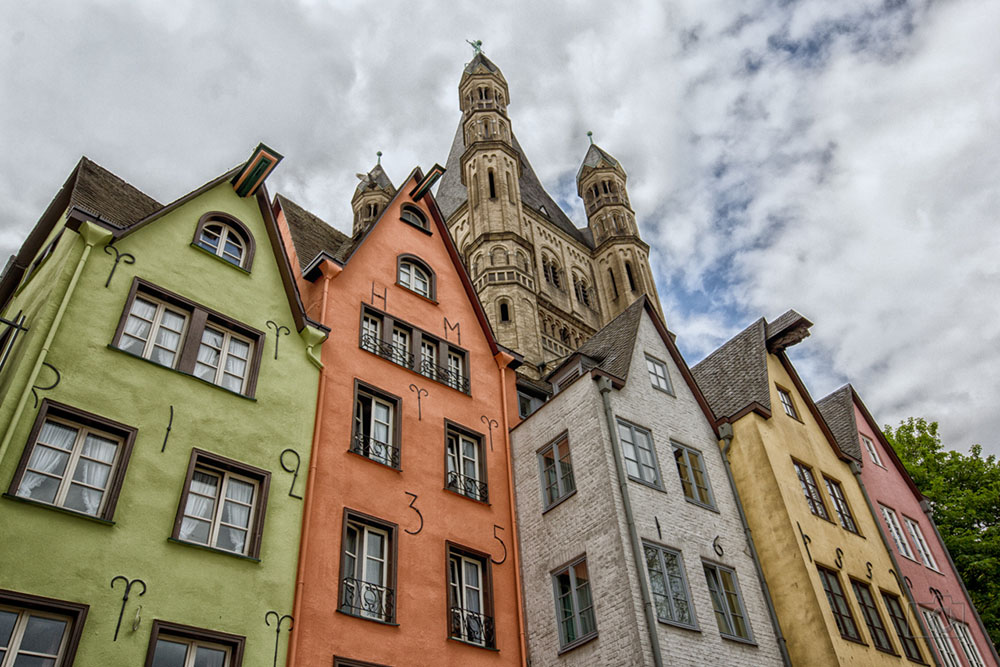
Cologne features functional urban spaces but has a charming Old City. Okay, so there’s at least one similarity. You’re likely to see more tourists traipsing around than locals in the winding streets of Cologne’s Altstadt. Heavily bombed during WWII, many of the structures have been rebuilt mostly in the style of the 1950’s and ’60s but some of the old world charm remains. The gothic styled Kolner Dom (Cologne Cathedral) is an impressive site, drawing more tourists than any other landmark in Germany. Although I do prefer the Altstadt of Düsseldorf, Cologne’s Altstadt is quite pleasant, running along the Rhine and featuring narrow streets dotted with quintessential German style architecture.
The Beer
In a land of lagers, the beers of these two cities have maintained their diversity. Düsseldorf has its Altbier and Cologne, its Kölsch. Get them mixed up and you may find yourself out on the street, or best case, being ridiculed by the waiter. Both in defiance of the German purity laws, these beers are served in small, narrow glasses by Köbes (beer servers) who balance more than two dozen on a tray in a crowded brauhaus. In both cities, until you put your coaster over your glass, beer will be automatically replaced, with the Köbes marking a tick on your coaster to keep track of your tab. When you’ve had your fill of beer, you bring your coaster to the register and pay for your number of ticks.
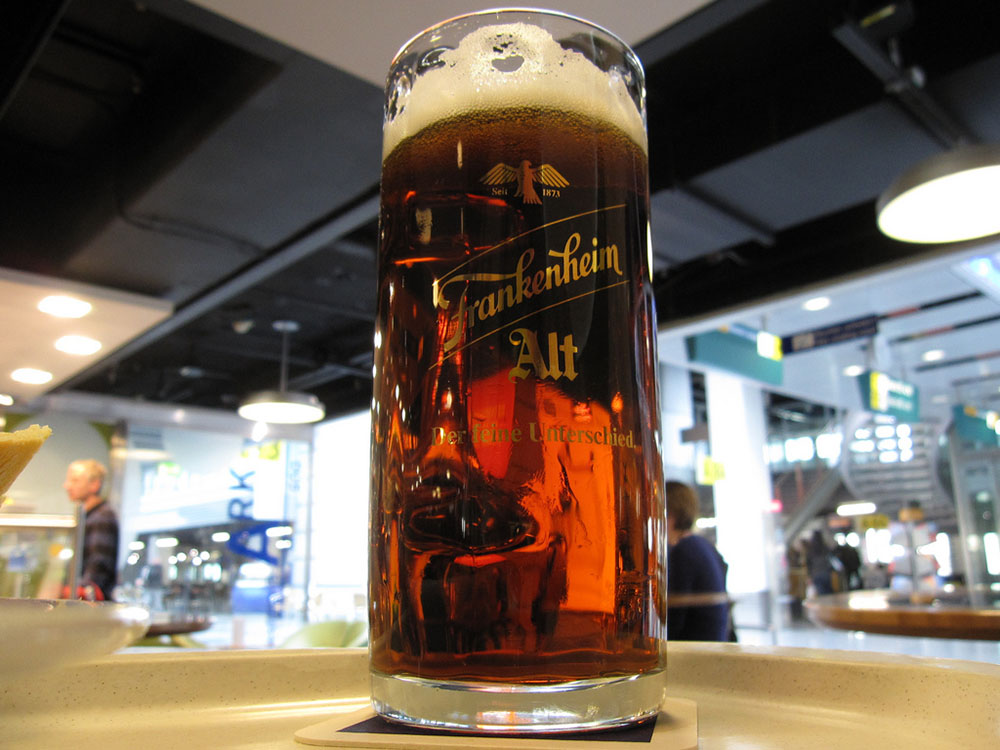
Altbier is a darker, hoppy ale. Named for the old world style of brewing (alt = old), Altbier’s persisted in the region even throughout Germany’s lager revolution. In the mid 20th century, there were around 100 Altbier breweries while today less than ten remain. While Altbier is a top fermenting ale, brewers did adopt the cold conditioning aspect of lagers which contributes to their unique taste. Altbier is copper hued and while malty and hoppy, it is less fruity than other light ales. The breweries of Zum Uerige and Brauerei Im Füchschen in the Altstadt or Brauerei Ferdinand Schumacher closer to the central train station evoke nostalgic feelings of the traditional bierhaus.
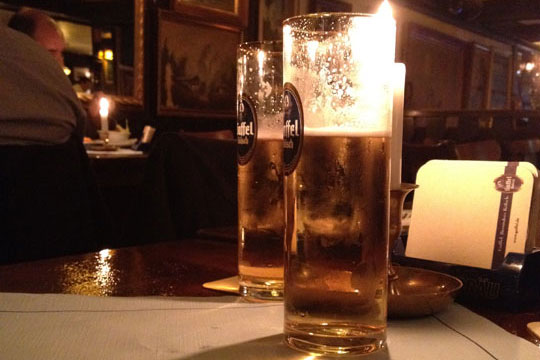 Kolsch bier is a light, refreshing ale. While also technically a top fermenting ale-lager hybrid, Kolsch bier is lighter in terms of colour and taste. The Kolsch Konvention enacted in 1985 deems that a brew can only be called Kolsch if it is brewed in Cologne, pale in colour, top fermented, hop accented, filtered, and brewed between specified temperatures. Although easily mistaken for a lager at first glance, Kolsch beer is often fruitier and sweet. Today, Cologne holds the record for the most breweries in any German city. Notable brew houses include Früh Am Dom, a large complex in the Altstadt nestled against the Cologne Cathedral (Dom), Brauerei Zur Malzmühle which is a bit of a trek from the centre of town but more authentic, and Päffgen Brauhaus which is a traditional beer house destroyed in WWII and rebuilt to its former grandeur.
Kolsch bier is a light, refreshing ale. While also technically a top fermenting ale-lager hybrid, Kolsch bier is lighter in terms of colour and taste. The Kolsch Konvention enacted in 1985 deems that a brew can only be called Kolsch if it is brewed in Cologne, pale in colour, top fermented, hop accented, filtered, and brewed between specified temperatures. Although easily mistaken for a lager at first glance, Kolsch beer is often fruitier and sweet. Today, Cologne holds the record for the most breweries in any German city. Notable brew houses include Früh Am Dom, a large complex in the Altstadt nestled against the Cologne Cathedral (Dom), Brauerei Zur Malzmühle which is a bit of a trek from the centre of town but more authentic, and Päffgen Brauhaus which is a traditional beer house destroyed in WWII and rebuilt to its former grandeur.
The Nightlife
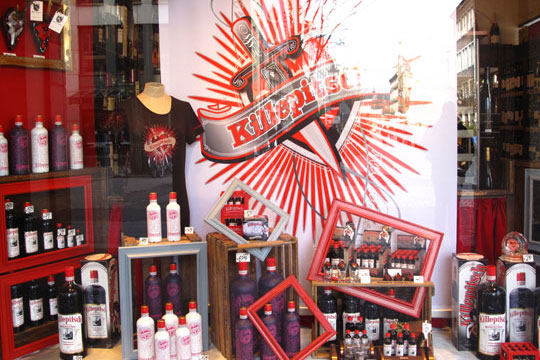
Party in the Altstadt in Düsseldorf: Living in Germany and coming from North America, I came to realize that the drinking culture was more subdued – overt public intoxication was quite rare and most German’s were respectful albeit very capable drinkers. This was not exactly my experience in Düsseldorf where I felt immediately transported to the boisterous and rambunctious bar streets of my university town. Most of the nightlife spots are located in the Altstadt which boasts 260 restaurants and bars within a 1/2 km stretch making bar hopping a breeze. In addition to the Altbier, another Düsseldorf specialty is an herbal liquor called Killepitsch. A digestif flavoured with more than 90 herbs, fruits and spices, Killepitsch is more complex and stronger than its often compared counterpart, Jagermeister.
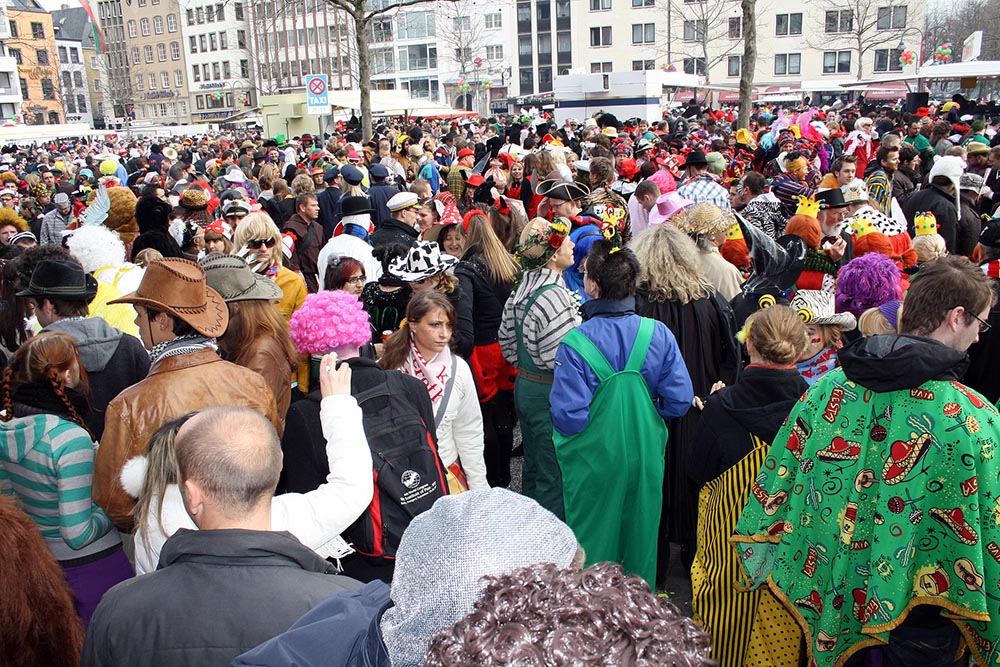
Get out of the Altstadt in Cologne: My first impression of the nightlife in Cologne was pretty abysmal. The Altstadt felt completely deserted, save for the kölsch houses that were occupied by some lingering tourists. When I mentioned this to my local friend, she laughed explaining that I’d totally missed the mark. Unbeknownst to me, the city has a thriving university population which has a party place catering to everyone. On subsequent visits, I was strongly encouraged to visit the Kwartier Latäng, the student centre of the Cologne. Bars, pubs and clubs pack the streets with particular density along Zülpicher Straße and Aachener Straße. A party not to be missed, Cologne’s Carnival in February is a raucous party in the streets with costumes, beer, and blaring traditional German songs and is arguably the best Carnival celebrations in this region of Europe. Sorry Düsseldorf.
The End
While it seems like I’ve pitted these two cities against each other, I really just want to highlight their unique aspects. I find myself continuing to come back to both Düsseldorf and Cologne because they are so different – they are defiantly in juxtaposition with each other. If at some point you find yourself in this region of the world, instead of thinking about Cologne versus Düsseldorf, make sure to plan for Cologne AND Düsseldorf.
Photos courtesy of Flickr; pickselated / Jim; xdjio; Rick Ligthelm; Thorsten Hansen; Chriz 71; Bernt Rostad; Harold R Cologne. Slider image courtesy of Flickr, FXTC
Make your next trip the best one.
Departful is a full service travel agency creating truly exceptional travel experiences that are 100% personalized to you. Wherever you’re going, whatever your interests, we help you plan the perfect trip.
Lauren
Lauren co-founded Departful in 2012 and is the Managing Director of Departful Media. Since then she has worked between North America and Europe and has published content in partnership with a variety of tourism boards and businesses based around the world. Lauren is currently based in Toronto, Canada.
5 Comments
Add comment Cancel reply
This site uses Akismet to reduce spam. Learn how your comment data is processed.


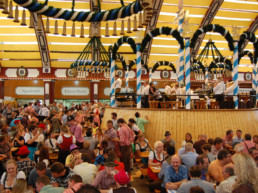
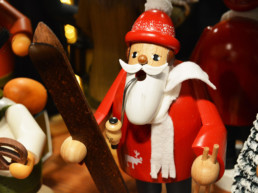
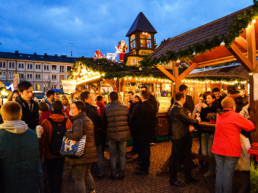
[…] Westphalia (NRW) are always competing against each other. The deep-seated rivalry goes back to a ‘classic power struggle’ however few really know the historical facts. People in both the cities that lie just 20 minutes […]
It’s Champs-Élysées
This article did not make my university decision any easier…Could anyone by any chance recommend which to attend for film? I would also need a job and accommodation etc etc (Basically a life). Both cities just seem so appealing in different ways I just haven’t been able to find an answer for my university choice as there is a lot to consider. On the other hand, I enjoyed this article it has given me more of an idea what each city is like. I want to visit both of them even more now.
[…] according to Toronto-based travel website Departful, it is a case of classic power struggle: “Cologne was a Roman city, founded around 50 AD […]
This article is spot on! Having lived and worked in both as a foreigner, I think the vibe is well described.
I would recommend Cologne to students since the people are generally speaking, more pleasant and laid back. You just need to learn to find your ways around, Düsseldorf is more in-your-face in terms of locations and spots which makes a weekend visit an easier deal.